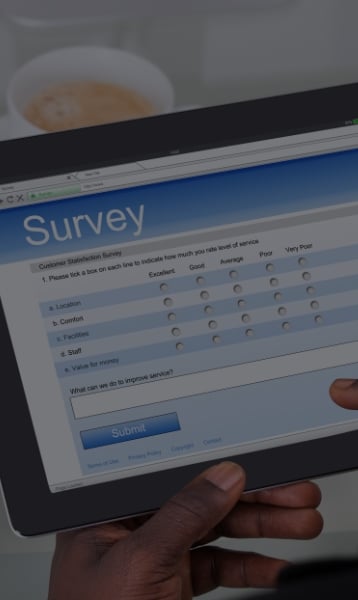The benchmarking portal gives you access to all reports available for STD, LTD, FML & WC.
Press Release: IBI Study Finds Medication Adherence Improves Productivity for Employees with Diabetes and Other Conditions

Marshall Riddle
Annual productivity savings to employers is estimated at $794 per employee with diabetes
SAN FRANCISCO – August 8, 2018 – A review of 13 scientific studies found that chronically ill employees who take their medications as prescribed have significantly fewer sick day and short-term disability (STD) absences. The review was conducted by the Integrated Benefits Institute (IBI) a non-profit focused on workforce health and productivity.
“The study suggests substantial financial savings could be realized for employers by increasing rates of adherence among employees with certain chronic conditions—particularly when combined with findings from other research showing that medication adherence reduces hospitalizations, emergency department visits, and provider office visits,” said Brian Gifford, PhD, Director, Research and Analytics for IBI.
The most consistent findings indicated that employees who had antidiabetic medications such as insulin, sulfonylureas, meglitinides, and biguanides on hand at least 80% of the time experienced between 2.8 and 9.0 fewer STD days per year than employees with diabetes who possessed medication less often—an average of 3.7 days across four studies that examined this relationship. Assuming average compensation costs in the US, the annual productivity savings to employers is estimated at $794 per employee with diabetes taking medications as prescribed.
Other conditions for which medication adherence were found to improve STD outcomes were asthma and chronic obstructive pulmonary disorder (COPD), hypertension, high cholesterol, rheumatoid arthritis, and multiple sclerosis. While the findings were less consistent, several analyses suggested that medication adherence also can improve sick day absences for employees with several conditions.
Combined with results published in January in the peer-reviewed journal Health Affairs, the review authors estimate that a 10 percent increase in medication adherence among 1,000 employees with diabetes could reduce lost productivity and health care utilization costs by about $370,000. This takes into account increases in prescription drug costs associated with improved medication adherence. By comparison, savings among 1,000 patients with high cholesterol and hypertension are estimated at about $340,000 and $410,000, respectively.
To help employers and other payers recognize the potential value of improved medication adherence, IBI is developing a free calculator tool for populations of employees with diabetes, high cholesterol, and hypertension. Tool users will be able define their own adherence targets and compensation levels to generate savings estimates for populations of patients with each chronic condition. Learn more at ibiweb.org.
About Integrated Benefits Institute
As the leading research organization in health and productivity, the Integrated Benefits Institute’s (IBI) work emphasizes that healthy, productive employees promote healthy business. Founded in 1995, IBI is an independent nonprofit serving more than 1,320 members employing 22 million people in the US. IBI provides unbiased research, insights and tools so employers and providers can make health decisions that positively impact people, productivity and performance (3Ps). For additional information, please visit www.ibiweb.org and follow us on Twitter and LinkedIn.
# # #
- December 2024 (1)
- November 2024 (1)
- July 2024 (1)
- June 2024 (1)
- March 2024 (1)
- February 2024 (1)
- January 2024 (1)
- December 2023 (1)
- November 2023 (1)
- August 2023 (1)
- July 2023 (1)
- May 2023 (2)
- February 2023 (2)
- January 2023 (2)
- November 2022 (1)
- October 2022 (1)
- September 2022 (1)
- March 2022 (1)
- February 2022 (1)
- January 2022 (1)
- December 2021 (1)
- September 2021 (1)
- April 2021 (2)
- December 2020 (1)
- October 2020 (1)
- September 2020 (2)
- August 2020 (2)
- July 2020 (1)
- April 2020 (1)
- March 2020 (1)
- November 2019 (1)
- September 2019 (1)
- July 2019 (1)
- June 2019 (2)
- May 2019 (1)
- April 2019 (1)
- February 2019 (1)
- November 2018 (1)
- September 2018 (1)
- August 2018 (1)
- June 2018 (1)
- March 2018 (1)
- March 2017 (1)
- February 2017 (2)
- Absence (1)
- Absence Management (1)
- analytics (1)
- Behavioral Health (1)
- Benchmarking (2)
- Benchmarking Analytics (1)
- Benefit Design (2)
- Benefits + Plan Design (2)
- Blog (1)
- Business Performance (1)
- CDHP (1)
- CFO Survey (2)
- COVID-19 (6)
- Depression (3)
- director (1)
- Disability Leave (7)
- Extreme Weather (2)
- Family + Parental Leave (3)
- FMLA (2)
- Health + Productivity Management (3)
- Healthcare (1)
- Healthcare Costs (2)
- lost time (1)
- Manage Absence (2)
- Medication Adherence (1)
- Mental + Emotional Health (4)
- Mental Health (2)
- new hire (1)
- Parental / Family Leave (1)
- Patient-Centered (1)
- Press Releases (50)
- Preventive Care (1)
- Productivity (3)
- Research (2)
- Research Report (1)
- Return to Work (1)
- Sick Leave (2)
- Telehealth (1)
- Telemedicine (1)
- Worker's Compensation (1)
- Workplace Health Programs (1)




























